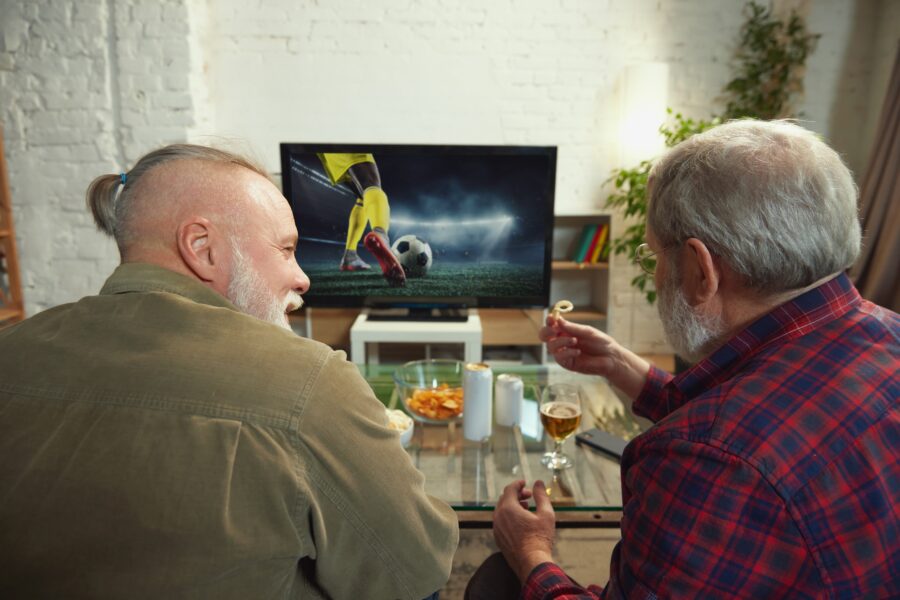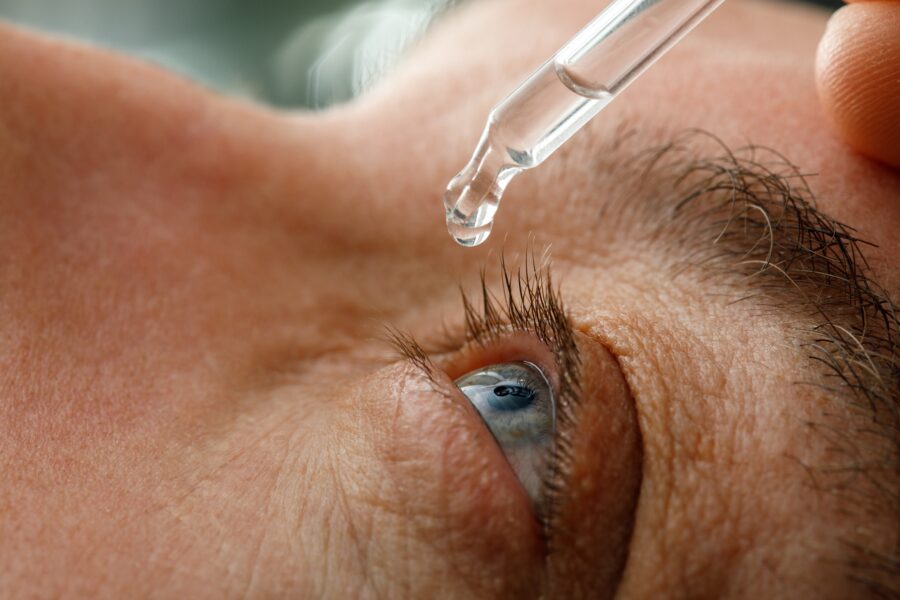Blog post
5 Tips for Taking Care of Your Eyes This Winter

Matthew Burford BSc(Hons) Optometry MCOptom - Domiciliary Optician and Professional Services Manager at OutsideClinic
As winter arrives, we get to experience a unique and refreshing change of scenery.
However, the chilly weather and darker nights can often result in lower visibility, increasing the risk of falls, eye strain, headaches and dry eyes.
This article provides straightforward, practical strategies for maintaining eye comfort and preventing dryness, allowing you to fully appreciate and enjoy the unique wonders of winter.

Keep eyes moisturised
The combination of chilly temperatures and central heating can leave your eyes feeling sore and dry.
To keep eyes moist and reduce irritation, use eye drops, or speak to your Optician about heated eye masks.
You can also lower the temperature on your central heating, use a humidifier to bring moisture back into the room, or most straightforward of all, drink plenty of water to stay hydrated!
Vary your activities
We tend to stay indoors much more during winter, which means we’re more likely to spend the day in one place, watching TV, reading or doing close-focus work like knitting.
Concentrating like this for more extended periods means we blink less often, which can cause dry eyes.
Remember to blink frequently, and practice the 20x20x20 rule (every 20 minutes, look at something 20 feet away for 20 seconds) to restore moisture to the eyes.
Use the right lighting
Dull, dim lighting can cause eye strain, headaches and redness.
Good lighting is essential in the home, especially in winter, when natural light is significantly lower.
Keep the curtains open as much as possible, and use multiple light sources around the room, increase light without relying on an overhead light and shading the bulbs so that you’re not looking directly at them.
If reading or writing, use a desk lamp with directed light to limit eye strain.
Eat for your eyes
Generally, we need more vitamins and minerals in winter, to aid in good overall health, but this is especially true for our eyes.
A diet packed with the right ingredients can support eye health, helping you to stay bright-eyed this winter.
Try filling your plate with things like salmon, tuna and oily fish, green leafy vegetables, eggs, nuts and beans and plenty of citrus fruits to keep your eyes healthy, moisturised and in tip-top condition.
Remember to drink plenty of water too!
Wear the right glasses and sunglasses
Even in winter it’s important to wear sunglasses. The sun sitting lower, snowfall and ice can all create reflective surfaces that bounce UV rays around, so it’s vital to shield your eyes from the sun.
Glasses with polarised lenses can help with this, to protect your eyes when the light is low.
If you need prescription glasses, it's vital to always wear your most up-to-date pair which are correct for the task you’re doing.
For instance, wear reading glasses for close up tasks like reading and knitting, and distance glasses for driving or watching TV.
This is particularly important in the winter months when it tends to be darker. When it's dark, our pupils dilate to allow more light in, but this causes our vision to be blurry, which can be a risk to our safety and increases our risk of falling over.
Blurry vision can occur both indoors and outdoors when there's poor lighting, including when you're driving.
If you’ve noticed a change in your eyesight, are struggling to see in darker environments, or you haven’t had an eye test in the past 2 years, then it’s important to get booked in.
OutsideClinic offers accessible and comprehensive eye tests conducted in the comfort of your own home. Our eye specialists are based all over the UK.
NHS funded at-home eye tests are available for eligible individuals who find it difficult to leave their home.
Check your eligibility for an NHS funded sight test at home
If you would prefer the convenience of an at-home eye test but you don't qualify for NHS funding, private home eye tests are available for £60.

By Matthew Burford BSc(Hons) Optometry MCOptom - Domiciliary Optician and Professional Services Manager at OutsideClinic
Matthew graduated from Aston University in 2004 with a degree in Optometry.



